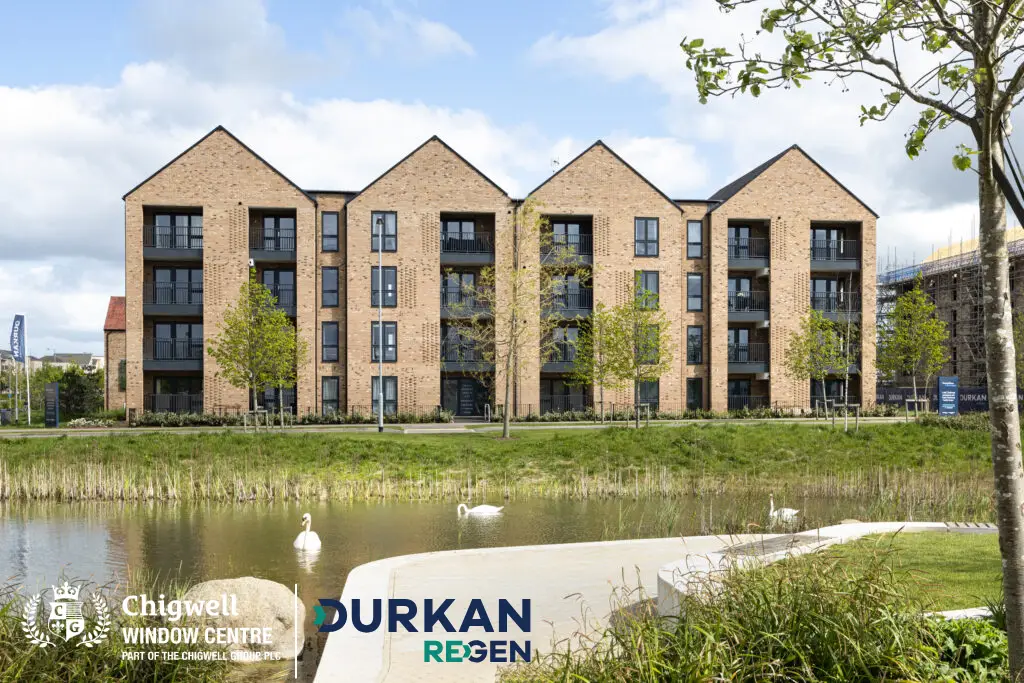Upgrading your external doors can significantly enhance both the aesthetic and energy efficiency of your home. However, before embarking on such a transformation, it’s critical to understand the legal landscape surrounding planning permission in the UK.
While many door replacements fall under “permitted development,” there are exceptions, especially in designated or protected areas. Missteps can lead to costly enforcement action, so due diligence is essential.
Permitted Development Rights Explained
In most cases, replacing an external door on a like-for-like basis doesn’t require planning permission. The UK government’s Permitted Development Rights allow for “minor improvements,” including replacing windows and doors, provided they closely resemble the original units.
So, if you’re simply upgrading your existing wooden front door with a similar-looking composite or aluminium option, you’re likely in the clear. These rights also cover internal secondary glazing and maintenance activities such as repainting door frames.
However, it’s crucial to ensure the new door maintains the building’s original character. Any substantial deviation—particularly one that alters the facade—might exceed these allowances.
When Planning Permission Is Required
There are scenarios where permission becomes non-negotiable. Installing a new bay door, for example, is legally regarded as an extension and requires full planning consent. Similarly, creating a new opening for a door where none existed before also falls outside permitted development.
Moreover, councils can revoke standard development rights via an Article 4 Direction. This restriction is commonly imposed in areas seeking to preserve a uniform appearance or historical value. In such cases, you must obtain explicit planning approval, even for changes typically exempt elsewhere.
Always consult your local planning authority if you are unsure. Taking a cautious approach is far better than navigating retrospective applications or enforcement notices.
Implications of Listed Buildings and Designated Areas
Living in a listed building brings with it a high degree of scrutiny. Any alteration—internal or external—requires listed building consent, regardless of whether it would be permitted development elsewhere. This includes changing external doors, even if they are replaced with materials and designs that mimic the original.
Similarly, homes in conservation areas, national parks, or Areas of Outstanding Natural Beauty (AONBs) may face heightened restrictions. Councils can impose planning conditions to preserve the area’s architectural integrity. Aluminium doors, although modern and sleek, may face additional barriers unless sympathetically designed to blend with the surrounding character.
If you are concerned about installing an aluminium door in Essex, speak to the experts at Chigwell Window Centre.
Building Regulations Compliance
Even if you sidestep planning permission, you must still comply with Building Regulations. Since April 2002, these regulations have applied to all replacement glazing—including external doors. Classified as “controlled fittings,” these components must meet minimum standards in several domains:
- Thermal insulation
- Ventilation
- Safety
- Escape provision
Installers who are part of a Competent Person Scheme can self-certify compliance. Homeowners receive a certificate proving the installation meets all legal requirements—eliminating the need for council inspection. DIY enthusiasts or those hiring unregistered contractors must instead engage their local authority building control or a private approver to inspect and certify the work.
Key Regulatory Considerations for External Doors
Thermal Efficiency
All new external doors must meet stringent U-Value requirements, ensuring minimal heat loss. The lower the U-Value, the better the insulation. This is not only a regulatory requirement but also a practical one—boosting energy efficiency and reducing heating bills.
Safety Glazing
Critical areas—such as glazed panels within 800mm of the floor or door side panels within 300mm of the frame—must feature toughened or laminated safety glass to prevent injury upon impact.
Ventilation
Doors play a role in air circulation, especially in wet areas like kitchens and bathrooms. Trickle vents and mechanical extractors must be appropriately installed to meet ventilation guidelines.
Fire Safety & Egress
The door should not compromise fire spread limitations or escape routes. Where doors are part of an escape path, they must retain adequate size and usability. Any reduction in functionality could pose a legal and safety issue.
Aluminium Doors: Modern Aesthetic Meets Regulation
Aluminium doors offer a compelling blend of contemporary styling and regulatory compliance. They’re strong, corrosion-resistant, and typically boast impressive thermal breaks to meet U-Value targets. Their sleek frames also maximise glass area without compromising on safety or durability.
For those looking to install aluminium doors in Essex or surrounding areas, Chigwell Window Centre is a trusted provider. Their team ensures that all installations are compliant with both planning policies and building regulations, removing the administrative burden from homeowners. Whether you’re upgrading a suburban home or retrofitting a period property with modern features, their experience is invaluable.
Choosing a Reliable Installer in Essex
The installer you select can determine whether your project proceeds smoothly or spirals into regulatory limbo. Look for companies registered under Competent Person Schemes, offering not only skill but also certification and peace of mind.
Chigwell Window Centre operates across Essex and beyond, with a reputation for craftsmanship and compliance. From initial consultation to post-installation certification, they cover every angle—ensuring your door upgrade is both beautiful and lawful.


